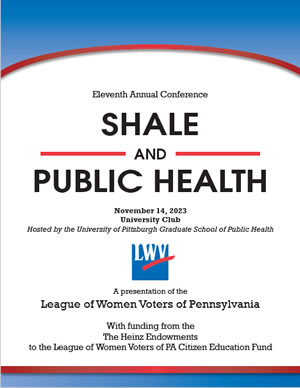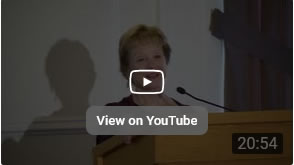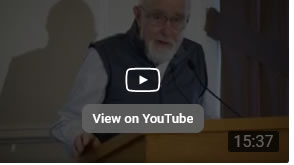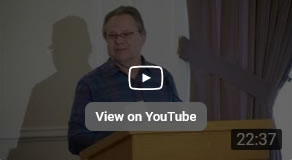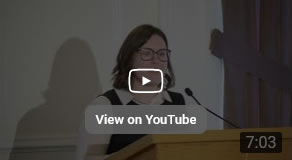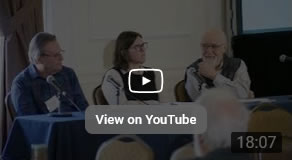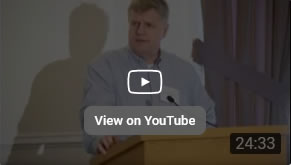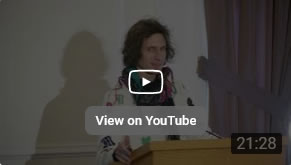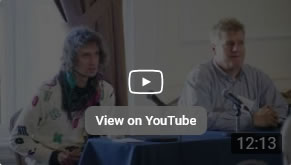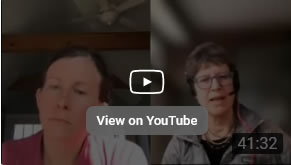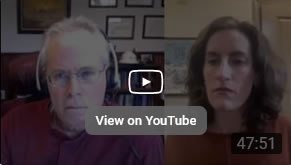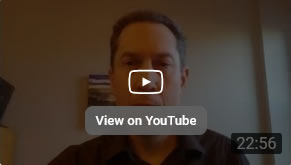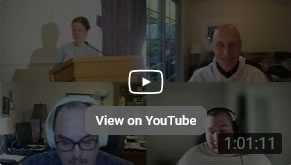The Straight Scoop on Shale
Sponsored by the League of Women Voters of Pennsylvania
2023 Shale Conference
Program
Pitt University Club | Ballroom B | November, 14, 2023 | 8:30 AM – 4:00 PM
8:30 AM Registration/Sign-In, Exhibits
9:00 AM Welcome
Cristina Beuger, MPH, Emcee, LWV of Greater Pittsburgh
Samantha Anthony, LWVPA Program Manager
Sally Wenzel, MD, Department Chair, Pitt Graduate School of Public Health
9:30 Pitt/PA Department of Health, Studies
Bernard Goldstein, MD, Professor Emeritus, Department of Environmental and Occupational Health, University of Pittsburgh School of Public Health
James Fabisiak, PhD, Associate Professor, Environmental and Occupational Health, University of Pittsburgh School of Public Health
Kristen Rodack, MSW, LSW, Executive Deputy Secretary, Pennsylvania Department of Health
10:30 Birth Impacts
Mary Willis, PhD, MPH, Assistant Professor, Department of Epidemiology, Boston University School of Public Health
10:55 10-minute break
11:05 Radiation and Waste
Daniel Bain, PhD, Associate Professor, Department of Geology and Environmental Science, University of Pittsburgh, University of Pittsburgh Faculty Fellow in Sustainability
Justin Nobel, Investigative reporter writing on science and environment for US magazines, literary journals, and investigative sites
12:00 Buffet Lunch
12:20 Lunch Presentation: 9th Compendium
Sandra Steingraber, PhD, Senior Scientist, Science and Environmental Health Network, Concerned Health Professionals of New York
1:00 Fracking and Water Contaminates
Susan Brantley, PhD, Barnes Professor of Geosciences and Evan Pugh University Professor, Geosciences, Earth and Environmental Systems Institute, Penn State University
Jennifer Baka, PhD, Associate Professor of Geography, Associate Faculty in Institutes of Energy and the Environment, Associate Faculty in Earth and Environmental Systems Institute, Department of Geography, Earth and Environmental Systems Institute, Penn State University
1:50 Abandoned Wells
Dominic DiGuilio, PhD, Independent Consultant, LLC
Melissa Ostroff, MPH, Pennsylvania Policy & Field Advocate, Earthworks
2:30 5-minute break
2:35 PFAS
Dusty Horwitt, JD, Consultant, Environment & Health Program, Physicians for Social Responsibility
3:00 Blue Hydrogen Panel
Rob Altenburg, JD, Senior Director for Energy and Climate, Penn Future
Sean O’Leary, Senior Researcher, Ohio River Valley Institute
Tom Torres, Hydrogen Campaign Coordinator, Ohio River Valley Institute
Moderator: Alison Steele, MBA, Executive Director, Environmental Health Project
4:00 Wrap-up. Please turn in your evaluations before you leave. Thank you for attending.
Opening Remarks
Cristina Beuger, MPH, Emcee, LWV of Greater Pittsburgh
Samantha Anthony, LWVPA Program Manager
Sally Wenzel, MD, Department Chair, Pitt Graduate School of Public Health
Pitt/PA Department of Health, Studies
Exploring Risk Factors of Human Exposure to Environmental Risk Factors
Bernard Goldstein, MD, Professor Emeritus, Department of Environmental and Occupational Health, University of Pittsburgh School of Public Health
James Fabisiak, PhD, Associate Professor, Environmental and Occupational Health, University of Pittsburgh School of Public Health
Birth Impacts
Mary D. Willis, PhD, MPH, Assistant Professor, Department of Epidemiology, Boston University School of Public Health
Radiation & Waste
Daniel Bain, PhD, Associate Professor, Department of Geology and Environmental Science, University of Pittsburgh, University of Pittsburgh Faculty Fellow in Sustainability
9th Compendium of Scientific, Medical, and Media Findings
Demonstrating Risks and Harms of Fracking and Associated Gas and Oil Infrastructure
Afternoon Sessions
Fracking and Water Contaminates
Susan Brantley, PhD, Barnes Professor of Geosciences and Evan Pugh University Professor, Geosciences, Earth and Environmental Systems Institute, Penn State University
Jennifer Baka, PhD, Associate Professor of Geography, Associate Faculty in Institutes of Energy and the Environment, Associate Faculty in Earth and Environmental Systems Institute, Department of Geography, Earth and Environmental Systems Institute, Penn State University
Abandoned Wells
Dominic DiGuilio, PhD, Independent Consultant, LLC
Melissa Ostroff, MPH, Pennsylvania Policy & Field Advocate, Earthworks
Panel Discussion: Blue Hydrogen
Rob Altenburg, JD, Senior Director for Energy and Climate, Penn Future
Sean O’Leary, Senior Researcher, Ohio River Valley Institute
Tom Torres, Hydrogen Campaign Coordinator, Ohio River Valley Institute
Moderator: Alison Steele, MBA, Executive Director, Environmental Health Project
Speaker Bios
Rob Altenburg, JD, is Senior Director for Energy and Climate at PennFuture. He has more than 30-years experience working with regulatory agencies and clean energy industry experts on climate and energy issues across the Commonwealth and has provided testimony to the White House, the U.S. Senate, the Pennsylvania Legislature, and numerous state and federal agencies.
As a recognized energy and climate policy expert, Rob has been interviewed by numerous media organizations, including ABC, NBC, NPR, Fortune Magazine, The Atlantic, The Guardian, and many state and local outlets. He also writes extensively on these topics and has co-authored a book chapter on federal climate policy.
Prior to joining PennFuture, Rob spent nearly 22 years with the Pennsylvania Department of Environmental Protection (DEP), working in both the Bureau of Air Quality and the Policy Office. In addition to his environmental work, Rob works as an adjunct instructor teaching courses in law and ethics; serves on the board of directors of the Keystone Trails Association; volunteers as a pilot with the Civil Air Patrol; is active in his local Rotary Club; and he is also a certified scuba diver who has dived on shipwrecks in the Atlantic.
Rob is a Widener Commonwealth Law School graduate and is licensed to practice law in Pennsylvania and before the United States Supreme Court.”
Samantha Anthony is the Program Manager at the LWVPA and has worked with the League as the Membership & Operations Associate since 2021. She graduated in 2020 from Temple University with a dual B.A. in Global Economy and German and a Master’s in Public Policy.
Prior to joining the League, Sam interned with the Think Tanks and Civil Societies Program, Foreign Policy Research Institute, and Temple University’s Political Science Department. She also worked as marketing coordinator for Global Philadelphia Association.
Daniel J. Bain, PhD, is an Associate Professor of Geology and Environmental Science at the University of Pittsburgh. He received his BA in geography and chemistry from Macalester College and earned his PhD in the Department of Geography and Environmental Engineering at Johns Hopkins University with a focus on fluvial geomorphology, trace metal geochemistry, and historic land use change. He studied non-traditional stable isotope geochemistry and catchment geochemistry as an NRC Postdoctoral fellow at the US Geological Survey. At the University of Pittsburgh, he has built a wide-ranging research program focusing on urban hydrological systems (e.g., green infrastructure and stream restoration), energy production landscapes (long wall coal mining, unconventional gas extraction), and the role of trace metals in human and environmental systems. He is also a co-founding member of the Pittsburgh Water Collaboratory and the current Faculty Advisory Board chair.
Jennifer Baka, PhD, is an Associate Professor of Geography and an Associate at the Earth and Environmental Systems Institute at Penn State. She conducts interdisciplinary research on how energy systems impact human-environment relationships and environmental governance. Since 2020, she has been a Member of the Environmental Justice Advisory Board for the PA Department of Environmental Protection. Prior to joining Penn State, she was an Assistant Professor of Geography and Environment at the London School of Economics from 2013-16. She earned a PhD in Environmental Studies from the Yale School of Forestry and Environmental Studies and a Master’s in Public Policy from UC Berkeley. Prior to graduate school, Dr. Baka worked in the energy industry for numerous years first as an economic consultant in Washington, DC and second as a consultant for the United Nations Environment Programme in Paris, France.
Susan L. Brantley, PhD, is Evan Pugh University Professor and Hubert and Mary Barnes Professor of Geosciences at Pennsylvania State University, where she also served as Director of the Earth and Environmental Systems Institute from 2003 to 2022. As a geochemist, Dr. Brantley focuses on understanding what controls the chemistry of natural water and how water interacts with the rocks through which it flows. Her recent work has focused on environmental impacts related to the use of hydraulic fracturing (“fracking”) in natural gas and oil extraction. She lives with her husband in State College Pennsylvania, where she watches from afar the careers of her two daughters, both geoscientists studying water in the environment.
Cristina Beuger, MPH, holds a Masters of Public Health from the University of Pittsburgh, Public and Community Health Services, 1995. Her previous experiences in Public Health were primarily research based. Cris served as the Clinical Research Administrator for New Bridge Medical Research overseeing FDA Clinical Trials in Wound Care. In addition, she conducted adolescent alcohol research at the Center for Rural Health Practice, University of Pittsburgh -Bradford, in conjunction with University of Pittsburgh Graduate School of Public Health. She recently left the Public Health research arena to pursue her love and passion for cooking as the owner/chef of Vita Bella Italian Cafe/Catering and President of Mangia Italia, Inc. When not cooking, she devotes her time working to protect our democracy with the League of Women Voters of Greater Pittsburgh, serving on the Voter Service Committee and the Shale and Public Health Committee.
Dominic DiGiulio, PhD, is a retired geoscientist from the U.S. Environmental Protection Agency. He has conducted research on: emissions of volatile organic compounds from abandoned wells, leakage of produced water, condensate, and drilling fluids from impoundments to groundwater, contamination of groundwater from hydraulic fracturing, subsurface methane and carbon dioxide migration (stray gas), intrusion of subsurface vapors into indoor air (vapor intrusion), gas flow-based subsurface remediation (soil vacuum extraction, bioventing), groundwater sampling methodology, soil-gas sampling methodology, gas permeability testing, and solute transport of contaminants in soil. He assisted in the development of EPA’s original guidance on vapor intrusion and the EPA’s Class VI Rule on geologic sequestration of carbon dioxide.
James Fabisiak, PhD, received his PhD in Pharmacology at the Pennsylvania State University School of Medicine at the Milton S. Hershey Medical Center. He went on to post-doctoral training at the University of Vermont and was the recipient of a Parker B. Francis Fellowship in Pulmonary Biology and Respiratory Medicine. He is currently an Associate Professor of Environmental & Occupational Health as well as current Director of the Center for Healthy Environments and Communities (CHEC) at University of Pittsburgh School of Public Health. CHEC’s mission is to apply a data-and fact-based approach to understand environmental health issues of importance to Southwestern PA. He originally considers himself a mechanistic toxicologist studying the cellular and molecular responses of injury, inflammation, repair and pathologic remodeling in the lung following environmental insult. He has received funding from the NIH, EPA, HUD and other sources and contributed to over 50 peer-reviewed publications. More recently he has “expanded his portfolio” to include more public health community-based activities such as studying public health risks associated with point source air pollution, unconventional natural gas drilling and marine oil spills. Dr. Fabisiak has served as a Co-investigator on the recently completed PA-DOH funded epidemiological studies on environmental factors, including unconventional natural gas activity, and health in Southwest PA.
Bernard Goldstein, MD, is a physician and toxicologist who is Emeritus Dean and Emeritus Professor of Environmental and Occupational Health at the University of Pittsburgh School of Public Health. He was the founding Director of the Rutgers Environmental and Occupational Health Sciences Institute. His research activities include publication of over 200 peer-reviewed papers. He is an elected member of the American Society for Clinical Investigation and of the National Academy of Medicine for whom he has chaired over a dozen committees. He has also served on or chaired committees related to environmental health for the World Health Organization and the United Nations Environmental Program. His past experience includes appointment as EPA Assistant Administrator for Research and Development under Administrators William Ruckelshaus and Lee Thomas; Chairperson of EPA’s Clean Air Scientific Advisory Committee; and President of the Society for Risk Analysis. He is active on issues related to shale gas; in the response to oil spills; in EU/US environmental policy differences; and on problems related to the interface between environmental science and public policy.
Dusty Horwitt, JD, has spent nearly 20 years researching and working to protect communities from the health and environmental impacts of oil and gas drilling and fracking as well as other environmental risks. An attorney and former reporter, he has written a chapter on fracking chemical disclosure for a textbook published by Elsevier. He has also been quoted in, and had his work featured in, media outlets including the New York Times, Wall Street Journal, and Marketplace on NPR. He has played significant roles in efforts to protect New York state, the George Washington National Forest, and the Delaware River Basin from unsafe shale gas drilling and fracking. He is the author of PSR’s report Fracking with “Forever Chemicals” about the use of PFAS in fracking and lead author of PSR’s reports Fracking with “Forever Chemicals” in Colorado, Fracking with “Forever Chemicals” in Ohio, Fracking with “Forever Chemicals” in Texas, and Fracking with “Forever Chemicals” in Pennsylvania, about the use of PFAS in oil and gas extraction in those states. He is continuing to work with PSR on issues related to oil and gas chemical exposure. In 2022, he was invited to testify before the Colorado House of Representatives and State Senate regarding legislation, later signed into law, that banned the use of PFAS in oil and gas wells in Colorado and improved oil and gas chemical disclosure in the state. Previously, he worked as a deputy press secretary on Capitol Hill and as a reporter at the City News Bureau of Chicago. He is a member of the Virginia State Bar.
Justin Nobel writes on science and environment for US magazines, literary journals and investigative sites. His investigation into the radioactivity brought to the surface in oil and gas production and the various pathways of contamination posed to the industry’s workers, public and communities, and the environment was published in 2020 with Rolling Stone Magazine, “America’s Radioactive Secret” and awarded best longform narrative by the National Association of Science Writers. Justin’s book on this topic, “Petroleum-238: Big Oil’s Dangerous Secret and the Grassroots Fight to Stop It” will be published in April 2024 and can be pre-ordered here: https://petroleum-238.blogspot.com/.
Sean O’Leary is a senior researcher at the Ohio River Valley Institute (ORVI) where he studies economic development and its intersection with the energy economy and energy transition. He is the lead author of the Frackalachia series of reports on the Appalachian natural gas boom’s impacts on jobs, incomes, and population. He is responsible for ORVI’s development of the Centralia Model for Economic Development in Distressed Communities. And he has written extensively about the limits and economic cost of an Appalachian blue hydrogen hub.
Melissa Ostroff, MPH, is the Pennsylvania Policy and Field Advocate at Earthworks, where she leverages optical gas imaging technology to respond to community concerns, inform policy, and ensure public health and environmental protection are prioritized across Pennsylvania. As a public health professional, Melissa is driven by the critical need to hold industry and government accountable to communities and to science. Melissa began her career assisting low-income Philadelphians seeking affordable legal aid, later serving in communications roles with the Pennsylvania State Senate and the University of Pennsylvania. While working at the University, Melissa completed her Master of Public Health degree, conducting fieldwork in Philadelphia with the Community Engagement Core of the Center of Excellence in Environmental Toxicology. A Fulbright scholar, Melissa holds an M.P.H. from the University of Pennsylvania and a B.A. in Government from Franklin & Marshall College.
Kristen Rodack, MSW, LSW, is the Executive Deputy Secretary at the Pennsylvania Department of Health (DOH). Prior to serving in this role Ms. Rodack was the Director of the Policy Office for DOH. Ms. Rodack joined the Policy Office in July 2019 as a William Penn Fellow focused primarily on maternal and child health policy and health equity. In 2020, she transitioned to an Executive Policy Specialist and later served as the Deputy Policy Director. Prior to coming to the department, Ms. Rodack worked to address health disparities and contributing social determinants of health at the local level through work with a county health department and in various non-profit organizations. She is a licensed social worker and received a Master of Social Work from the University of Pittsburgh and a Bachelor of Arts degree in sociology and psychology also from the University of Pittsburgh.
Alison L. Steele, MBA, is the Executive Director of the Environmental Health Project, a Pittsburgh-based nonprofit organization that seeks to defend public health in the face of oil and gas development. She earned her bachelor’s degree in physics from Drew University and her MBA in Sustainable Business Practices from Duquesne University. As part of her graduate work, Alison studied sustainability tools and practices used by leading companies in Europe, performed consulting services for large Pittsburgh-area companies, and published research on organizational behavior techniques used to aid adoption of sustainability initiatives. Prior to starting at EHP, she led policy and education efforts at Conservation Consultants, Inc. and developed the company’s flagship grassroots community engagement program, which focused on advancing home health and energy efficiency in low-income Pittsburgh neighborhoods.
Sandra Steingraber, PhD, is a biologist and senior scientist at the Science and Environmental Health Network. As a founding member of Concerned Health Professionals of New York, she is one of the principal authors and editors of the Compendium of Scientific, Medical, and Media Findings Demonstrating the Risks and Harms of Fracking and Associated Oil and Gas Infrastructure, just released in a ninth edition. In 2011, she was a recipient of a Heinz Award from the Heinz Family Foundation and used the prize money to co-found New Yorkers Against Fracking, which helped win a statewide ban on fracking in New York State in December 2014.
Tom Torres is the Hydrogen Campaign Coordinator at Ohio River Valley Institute. He is an organizer and nonprofit professional with a strong commitment to popular education and movement building. Originally from Northeast Georgia, Tom’s work has spanned a number of rural communities, including the Deep South and Appalachia, and has focused on regional economic development, fighting climate change, and providing people with the tools and resources they need to build collective power in their communities.
Sally Wenzel, MD, completed her MD degree at the University of Florida and spent 19 years at National Jewish and the University of Colorado before moving to the University of Pittsburgh. She received numerous awards from the American Thoracic Society and the European Respiratory Society. She is currently Director of the University of Pittsburgh Asthma and Environmental Lung Health Institute at UPMC, and Chair for the Department of Environmental and Occupational Health, at the School of Public Health, University of Pittsburgh. Dr. Wenzel has a passion for improving the understanding of the prevention and treatment of asthma, in particular severe asthma, where both genetic and environmental factors are likely to be playing a role. She has performed research bronchoscopies on hundreds of asthma patients, studies critical to identifying the heterogeneity of asthma, including the influence of T2, T1 and innate immunity. Her current bench-lab interests include the role of epithelial cells in the modulation of redox balance, inflammation, mucus production and clearance in the airways. She now chairs the Department of Environmental and Occupational Health at the University of Pittsburgh, where she is leading efforts to address the effects of the environment and its various pollutants to impact oxidative stress in airway epithelial cells of asthmatic patients. She has authored more than 350 publications and is the recipient of numerous awards including the European Respiratory Society (ERS) Presidential Award in 2017, the American Thoracic Society (ATS) Foundation Breathing for Life 2016 Award, and the ATS Amberson Lecture in 2021 for her career work in all aspects of asthma. As Chair of Environmental and Occupational Health, she is dedicated to improving the air and water quality of our region and its disproportionate impact on the health of people of color.
Mary D. Willis, PhD, MPH, is an Assistant Professor in the Department of Epidemiology at the Boston University School of Public Health. Her expertise lies at the intersection of environmental epidemiology, spatial exposure assessment, and applied data science. Much of her work also leverages econometric-based causal inference methods. She is particularly interested in how epidemiological studies can be best designed to inform health-protective policy decisions. To date, Dr. Willis has primarily focused on how on exposures from the energy sector (e.g., oil and gas development, traffic-related air pollution) and other aspects of the built environment (e.g., green space, neighborhood disadvantage) influence reproductive health outcomes.
Dr. Willis is PI of an NIH Director’s Early Independence Award that examines how oil and gas development may impact fertility and pregnancy. She is also a co-investigator on an accountability study of vehicle emission regulations and birth outcomes that is funded by the Health Effects Institute.”

